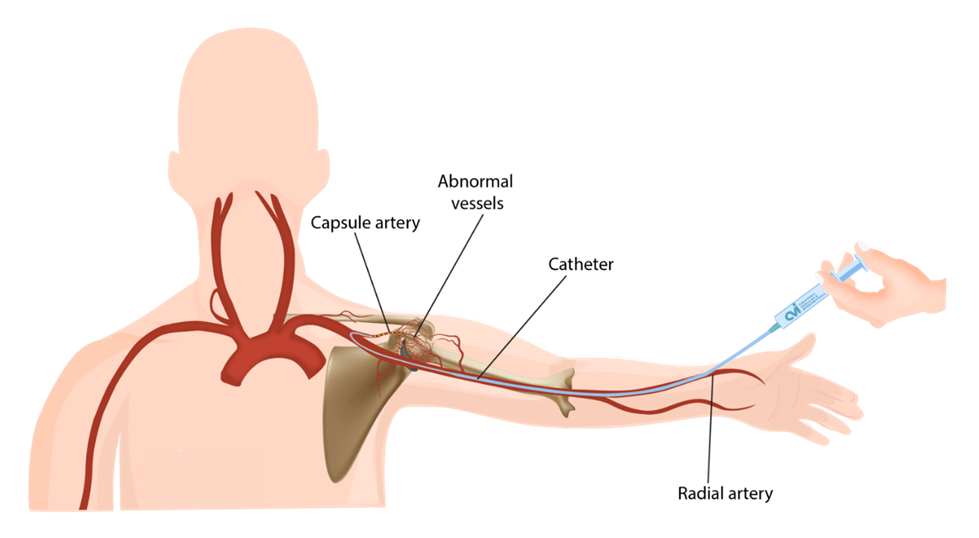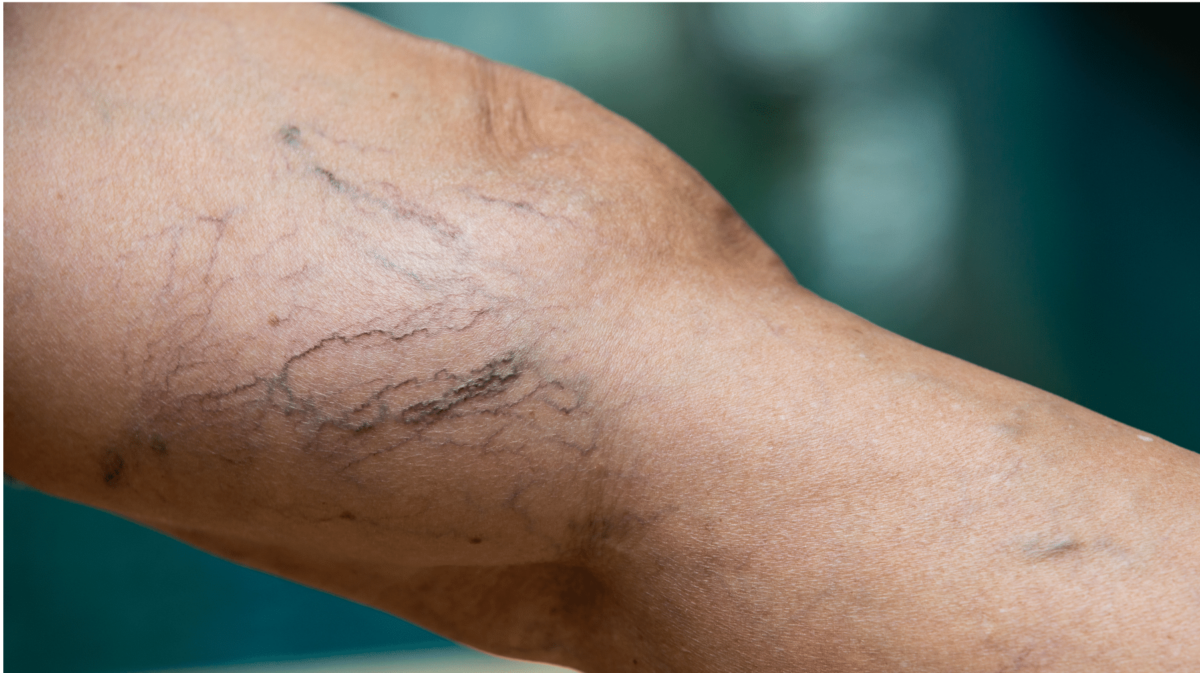Have you noticed a gradual loss of range of motion in your shoulder – even if you use your other arm to try to move it? You may have frozen shoulder, and we can help!
Frozen shoulder is a debilitating condition marked by shoulder pain, stiffness, and gradual loss of mobility. Little is understood about its causes, and treatment is usually limited to pain medication, physical therapy, and corticosteroids. Some patients are simply told to wait until their condition improves over months or years. However, did you know that Adhesive Capsulitis Embolization, a non-surgical, outpatient treatment, is being used to successfully relieve the pain caused by frozen shoulder?
Frozen Shoulder Symptoms
A telltale symptom of frozen shoulder is pain and restricted movement of the shoulder, even when using assistance to move the affected arm. The pain may be severe enough to interfere with daily activities. The shoulder may also feel like it is locked in place.
The signs and symptoms of frozen shoulder appear in stages and usually resolve on its own within a few years. The three stages of frozen shoulder are:
Patients usually report sudden onset of diffuse shoulder pain that gets worse with time. In the beginning, the pain is worse at night and with movement, but it then becomes noticeable even during rest. This phase lasts two to nine months.
As the pain slowly dwindles, the symptoms of shoulder “freezing” gradually worsen. Patients start to notice they are less and less able to move their shoulders in all directions. Daily activities can become more difficult to carry out as time goes on. This phase usually lasts four to 12 months.
Also called the recovery phase, patients may notice a gradual return of their range of motion. Most patients notice a complete return of their strength and range of motion, although symptoms do not fully resolve in some. This phase usually lasts 12 to 24 months. The pain due to frozen shoulder is usually dull and aching, while the stiffness is so severe that simple arm movements become impossible.
How Does Adhesive Capsulitis Embolization Work?
Treatment for frozen shoulder typically includes a combination of physical therapy, exercises, and medications. Surgery is rarely needed. With treatment, most people with frozen shoulder will eventually regain full range of motion in their shoulder.
JRA offers a breakthrough treatment that can provide immediate, long-term relief for those with frozen shoulder.
Embolization for frozen shoulder, Adhesive Capsulitis Embolization (ACE), involves using a catheter threaded from an artery in the arm to the affected shoulder. Medication or tiny particles are released in the target location to slow the blood supply to the lining of the joint. This offers effective and long-lasting inflammation relief, which can relieve the pain and restriction of movement common with frozen shoulder.

Benefits of ACE:
- Skip the Surgery: Embolization is a non-surgical approach, meaning it avoids large incisions, reducing the risks and complications associated with traditional shoulder surgery.
- Tiny Incision: The procedure involves only a small puncture to insert a catheter, resulting in minimal scarring and a less traumatic experience.
- Local Anesthesia: The procedure is performed under local anesthesia with light sedation, so you stay comfortable and awake without the need for general anesthesia.
- Outpatient Procedure: Unlike surgery, embolization is typically done on an outpatient basis, so you can return home the same day.
- Quick Return to Activities: Most patients experience a swift recovery, allowing them to resume daily activities within a day or two.
- Targeted Treatment: Embolization directly addresses the inflamed blood vessels in your shoulder, reducing pain by decreasing inflammation at its source.
- Rapid Results: Many patients experience pain relief within days and significant relief within weeks, with continuous improvement in shoulder function over time.
- Long-Lasting Relief: By reducing the blood supply to the inflamed tissues, the procedure helps prevent recurring pain and stiffness.
- Reduces Stiffness: The procedure helps alleviate the stiffness that limits your shoulder’s range of motion, making it easier to move and use your shoulder normally.
- Proven Safety: Embolization is a well-established procedure used for various medical conditions and is performed by specialized interventional radiologists.
Do you have frozen shoulder but don’t want to wait 1-3 years for it to resolve on its own? We’ve got you! The interventional radiologists at JRA offer same-day, minimally invasive embolization procedures to improve your shoulder function. Call 731-240-1747 to schedule your consultation.





